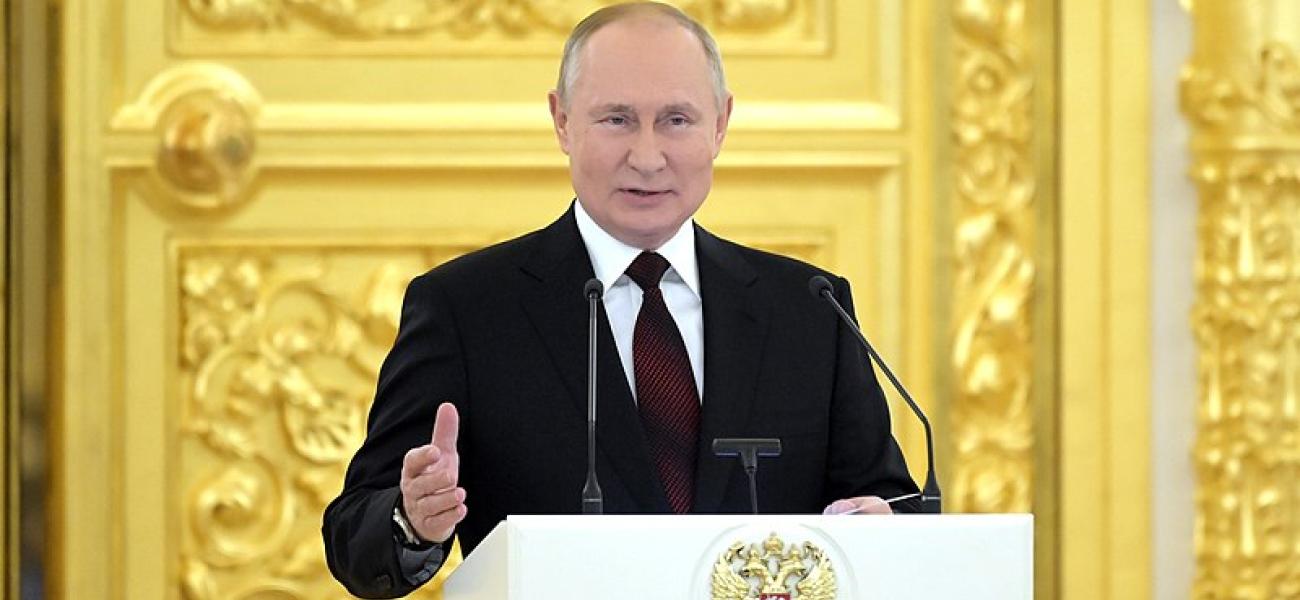
What’s Eating Putin?
This is a summary of an article originally published by the Bulletin of the Atomic Scientists.
The author, the Steven C. Házy Lecturer at the Freeman-Spogli Institute of the Center for International Security and Cooperation at Stanford University and a research fellow at the Hoover Institution, writes that the answer to questions about Putin’s motivations to invade Ukraine and threaten the use of nuclear weapons is “complicated.” The author argues that “no single answer fully accounts for the display we are seeing of Vladimir Putin’s anger and grievance” and that, instead, “at least eight different factors account for Putin’s erratic and dangerous behavior.”
The author identifies these eight different factors motivating Putin’s behavior as: genuine nostalgia, which includes nostalgia for “Russia’s imperial past and the nationalist trappings that go with it—Russian Orthodoxy, protection of Russian-language speakers, and conservative interpretations of Russian national identity”; the need to right past wrongs; the idea that Putin lives in a different reality because he is not exposed to “wider viewpoints”; scorn for Ukraine’s leadership and system, Putin’s reputation as the “global bully”; Putin’s need for the international community to pay attention to Russia; the need to keep antsy potential successors and an increasingly distrustful public “off balance”; and frustrations regarding perceived limitations to Russian power due to treaties such as the Conventional Armed Forces in Europe Treaty (CFE).
The author argues that, in light of all of these factors “trying to back [Putin] off this precipice will take a good deal of finesse” and “no foreign counterpart has found the means thus far to tempt him off the cliff,” although the author identifies Chinese President Xi Xinping as potentially filling this role.
Read the full article at Bulletin of the Atomic Scientists.
Rose Gottemoeller
Rose Gottemoeller is the Steven C. Házy Lecturer at the Freeman-Spogli Institute of the Center for International Security and Cooperation at Stanford University and a research fellow at the Hoover Institution.
The opinions expressed herein are solely those of the author. Photo by Kremlin.ru shared under a Creative Commons license.
